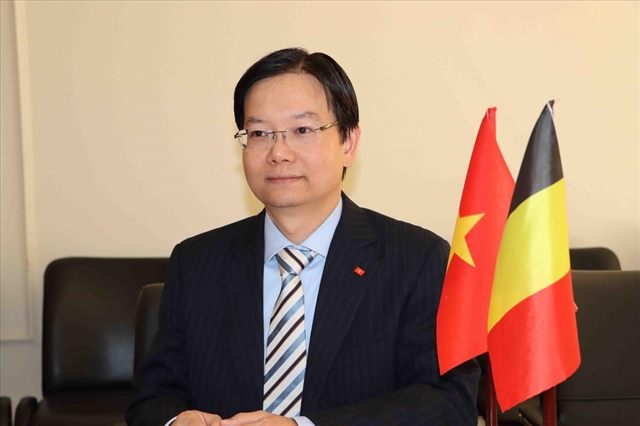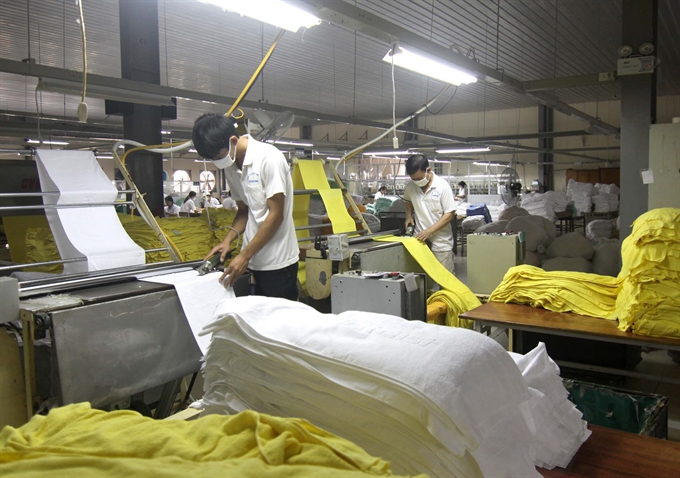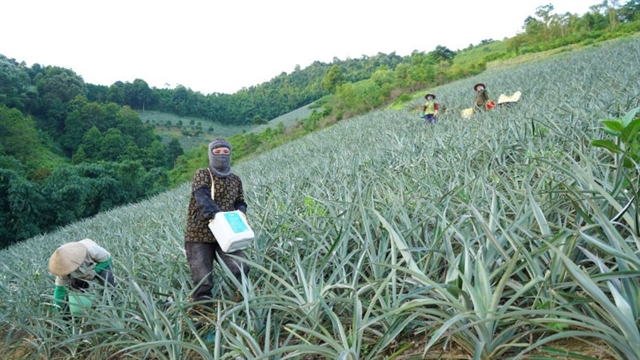 Economy
Economy

The Government should not adjust the economic growth target of 6.7 per cent even though it is unlikely to meet it this year, experts said during a conference in Hà Nội yesterday.
 |
| Hanosimex Hà Đông Textile JSC workers in Hà Nam Province’s Đồng Văn 2 Industrial Zone. The CIEM report reiterated that Việt Nam’s targetted 6.7 per cent growth rate is almost unfeasible. - VNA/VNS Photo Vũ Sinh |
HÀ NỘI — The Government should not adjust the economic growth target of 6.7 per cent even though it is unlikely to meet it this year, experts said during a conference in Hà Nội yesterday.
“I suppose it is good that the Government keeps the target intact,” Nguyễn Đình Cung, Director of the Central Institute for Economic Management (CIEM), said as the agency issued its economic update for the second quarter of 2016.
“By not adjusting it, we will have things to dissect at the end of the year – why we failed to achieve the goal. We need to seek measures and opportunities rather than to sit clapping hands [for attaining a lower target],” he said.
The report of the CIEM, an agency advising the Government on economic management policies, reiterated that Việt Nam’s aim for a 6.7 per cent growth rate is almost unfeasible – just like expert forecasts reported by local media earlier this year.
Cung said the country had not regained the momentum for gross domestic product (GDP) growth, which was around 5.5 per cent in the first half of the year.
The country continued to witness significant impact from global and regional fluctuations, while it needed more time to resolve inherent problems in its growth model, he said.
According to Cung, the agriculture-forestry-aquaculture sector improved very slightly in Q2, growing by 0.06 per cent quarter-over-quarter.
Export value totaled US$82.1 billion in the first half of 2016, an increase of 5.7 per cent over the end of 2015 – the lowest H1 growth level in the last few years. Export growth was mainly driven by foreign direct investment enterprises.
Bad debts in the economy increased slightly to 2.62 per cent at the end of March.
Economist Nguyễn Quang Thái agreed with Cung, saying that an unchanged growth target will force the country to try harder.
“Foundations for growth remain fragile, especially with declines in agriculture and manufacturing. It is necessary to increase revenues and reduce spending, restructure public investments and improve employment and incomes,” he said.
Another economic expert, Lê Đăng Doanh, said Việt Nam was likely to see more economic fluctuations in the face of global uncertainties.
While a British exit from the European Union might affect the Vietnamese economy in an indirect way in the long term, ongoing territorial water disputes over the East Sea would definitely affect trade in Southeast Asia, he said.
Domestically, Cung said there were bases for more sustained economic growth, as the new Cabinet sent a series of messages about stimulating the business climate and creating a business environment that is easier to be anticipated.
Achim Fock, the acting country director for the World Bank (WB) in Việt Nam, said during an economic review in Hà Nội last week that the country’s medium term outlook remained positive.
WB economists said that while the country was facing stronger global headwinds, its GDP growth was expected to reach 6 per cent this year. — VNS




